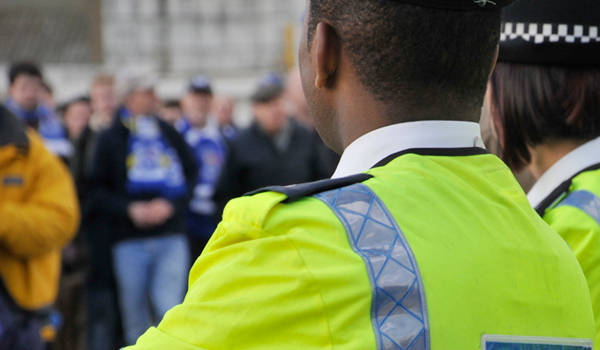Cocaine-fuelled hooligans to be banned from football matches
Football fans caught with cocaine could be banned from attending matches for five years, under new government plans announced on Thursday (May 19).
Those convicted of supplying or being in possession of Class A drugs at matches could also be forced to surrender their passports when their team is playing abroad.
The new measures are a bid to tackle the rise in violence and disruption at football matches fuelled by “middle class coke heads”.
Police, Crime and Probation Minister, Kit Malthouse, said scenes of “ugly violence” at some games had shocked football and it was time to act.
The changes will be rolled out during the next football season by extending Football Banning Orders.
The move is backed by the National Police Chiefs’ Council (NPCC) and follows concerns that substance misuse is fuelling a rise in violence and disorder at matches.
Announcing the plans at today’s National Drugs Summit in London, Mr Malthouse said: “It’s been a thrilling football season, but at some games we’ve seen ugly violence that that has shocked all the leagues.
“More and more the police are finding Class A drugs at the heart of that disorder and so we must act. The football family wants every ground to be a safe space for fans, especially children, and so do we.
“Football Banning Orders have been a game-changer in rooting out racism and violence at football, and now we want them to do the same for drug-related disorder.
“The Government is determined to drive down drug use and bring home to all who take them that drugs bring consequences.”
It is hoped the new measures will prevent disorder such as that seen at the Euro final between England and Italy at Wembley last July and allow football to be enjoyed by families across the country.
Commenting on the changes, Prime Minister Boris Johnson said: “Middle class coke heads should stop kidding themselves, their habit is feeding a war on our streets driving misery and crime across our country and beyond.
“That’s why we are stepping up our efforts to make sure those who break the law face the full consequences – because taking illegal drugs is never a victimless crime.”
NPCC Football lead Mark Roberts said: “I am pleased the Government has updated the Football Banning Order legislation to counter the growing issues of disorder we have seen, in part driven by the use of Class A drugs.
“Policing and football authorities all support this measure and it is an important step in ensuring that the use of drugs at football is tackled so the majority of fans, particularly those with families, can enjoy themselves without suffering anti-social behaviour and violence.
“The UKFPU (UK Football Policing Unit) will be coordinating activity with police forces and clubs from the start of next season to ensure that we make the best use of this legislation to target the use of drugs at football.”
Research published last year found that cocaine use among football fans was higher than the national average and often associated with aggression between rival supporters.
The study by Dr Martha Newson from the University of Kent suggests that “highly bonded fans” were particularly likely to get tied up in aggressive behaviours – especially if they used cocaine
Her research sampled more than 1,000 British fans across leagues and concluded that “football mirrors wider society”, be it in social issues or drug use.
Dr Newson said the widespread availability of cheap but high purity cocaine may be associated with fan aggression, especially among fans who are highly bonded to their clubs and fellow fans.
Football Banning Orders are imposed by a court and must be made with the clear intention of preventing the individual’s involvement in violence, disorder or harm. They can currently be imposed only on people convicted of violence, disorder and racist or homophobic chanting and were recently extended to cover online hate offences.
Today’s National Drugs Summit in London will focus on understanding the drivers fuelling demand for drugs and how these can be tackled.
The conference will hear from Bryony Gordon and Nelson Trust founder Kirsty Day who will share their lived experiences, Fiona Spargo-Mabbs, whose 16-year-old son died after taking MDMA, Professor Dame Carol Black and Deputy Chief Constable Jason Harwin.


